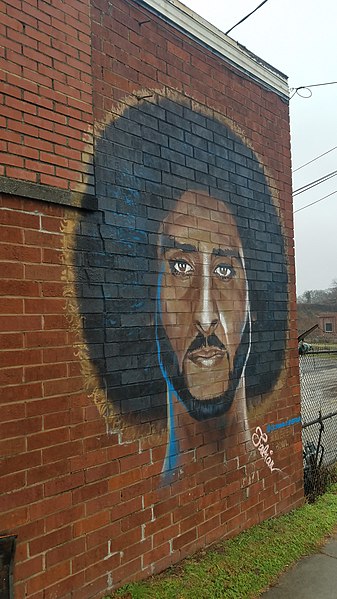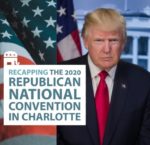Aug. 26, 2020 marked four years since former 49ers star quarterback, Colin Kaepernick, began protesting police brutality against Black people in America. This year on Aug. 26, the Miluakee Bucks of the National Basketball Association (NBA) refused to come to the court to play their game, three Women’s National Basketball Association (WNBA) playoff games and three Major League Baseball (MLB) games were postponed. The teams did this to honor Jacob Blake, a victim of police brutality.
On Aug. 14 and 20 of 2016, former 49ers quarterback Colin Kaepernick remained seated on the bench while the national anthem played in the stadium. Kaepernick explained Aug. 26 that by not standing for the anthem, he was protesting police brutality in the United States.
“I am not going to stand up to show pride in a flag for a country that oppresses Black people and people of color,” said Kaepernick in an interview with National Football League (NFL) media after a game. “To me, this is bigger than football, and it would be selfish on my part to look the other way. There are bodies in the street and [the police are] getting paid leave and getting away with murder.”
Kaepernick’s actions were met with backlash, most of which was founded on the notion that he was disrespecting the flag and being unpatriotic. In response to this, Kaepernick met with Nate Boyer, a former NFL player and Green Beret, on Sep. 1.
“Nate, do you think there’s another way I could demonstrate or protest that won’t offend people in the military?” Kaepernick asked Boyer.
Boyer suggested Kaepernick kneel during the anthem.
“The national anthem is and always will be a special part of the pre-game ceremony,” said the 49ers in a released statement regarding Kaepernick’s protest. “It is an opportunity to honor our country and reflect on the great liberties we are afforded as its citizens. In respecting such American principles as freedom of religion and freedom of expression, we recognize the right of an individual to choose and participate, or not, in our celebration of the national anthem.”
However, things started to change when Kaepernick was released from his contract in 2017 at the end of the football season when he had not been signed to a new team in the NFL. In October, Kaepernick filed a grievance against the league, claiming that the teams had colluded to keep him out of the league.
Following Kaepernick’s example, more and more players across the NFL decided to kneel during the national anthem in peaceful protest, including athletes such as Megan Rapinoe, co-captain of the United States Women’s National Soccer Team, and WNBA players who are not affiliated with the NFL.
“Protesting in sports is important because it gets the movement across to a different audience,” said Northwood High School junior Sydney Arnott. Arnott has been on Northwood’s varsity women’s soccer team for the past two years. “Lots of athletes are idols to many youth groups so [protesting] can help influence new generations.”
The NFL released a new statement due to the increase of protestors during games.
“[The 2017-2018] season, all league and team personnel shall stand and show respect for the flag and the Anthem,” said Roger Goodell, commissioner of the NFL, in a released statement in 2018. “Personnel who choose not to stand for the Anthem may stay in the locker room until after the Anthem has been performed.”
The players did not like this new rule. The NFL Players Association (NFLPA), a union that represents all professional players in the NFL, filed a grievance against the league, stating, “The union’s claim is that this new policy, imposed by the NFL’s governing body without consultation with the NFLPA, is inconsistent with the collective bargaining agreement and infringes on player rights.”
A week after this, the NFL placed the policy on hold so they could discuss any further action with the players.
Despite the clarifications Kaepernick and other athletes had made in regards to what they were protesting in addition to the noticeable shift that was made from sitting to kneeling during the anthem, many were still critical. One of these critics was President Donald Trump.
“The NFL players are at it again – taking a knee when they should be standing proudly for the National Anthem. Numerous players, from different teams, wanted to show their ‘outrage’ at something that most of them are unable to define,” Trump tweeted Aug. 10, 2018. “Be happy, be cool! A football game, that fans are paying soooo much money to watch and enjoy, is no place to protest…Find another way to protest.”
Flash forward to August of 2020. America is in the middle of one of the largest civil rights movements in the country’s history. The Black Lives Matter (BLM) movement originally started in 2013 after the acquittal of George Zimmerman, the man who fatally shot and killed Treyvon Martin, a 17 year old Black American. The movement has been gaining momentum in recent months due to the recorded police killing of Geroge Floyd, an African-American man. The movement is focused on issues that concern racial injustice such as police brutality and reforming the criminal justice system, as well as LGBT+ rights, environmental justice and voter suppression.
“The Black Lives Matter movement is so terribly important and so many people don’t even realize it,” said Northwood High School sophomore Kalena Delgato. “We’re fighting for our lives! I often worry that I could be the next face on the news…the next victim…It’s very important that your voices get heard, so I personally have taken to protesting, donating, and of course signing petitions and I urge everyone to do the same. BLM is not a trend and these attacks can’t go on any longer. How many more innocent people do we have to lose before something finally changes?”
On Aug. 26, The Milwaukee Bucks, an NBA team, remained in their locker room and refused to play their scheduled game against the Magic. They instead demanded justice for Jacob Blake, a victim of police brutality who was shot seven times in the back by Kenosha, Wisconsin police Aug. 23. That night, The National Basketball Players Association, the union for professional basketball players in the NBA, held a meeting to discuss the future of basketball post-season.
“Throughout the season restart, our players have been unwavering in their demands for systemic justice,” said The National Basketball Players Association’s union chief Michele Roberts, “This week we witnessed another horrific, shocking and all too familiar act of brutality in the shooting of 29 year-old Jacob Blake in Kenosha, Wisconsin. The players have, once again, made it clear — they will not be silent on this issue. We stand with the decision of the players of the Milwaukee Bucks to protest this injustice and support the collective decision to postpone all of today’s games.”
Not long after the cancellation of the Bucks’ game, MLB’s Milwuakee Brewers did not play their scheduled game with the Cincinnati Reds.
“Our team and the Reds felt that with our community and our nation in such pain, tonight we wanted 100 percent of the focus to be on issues that are much more important than baseball,” said Brewers pitcher Brent Suter.
In addition to the Brewers and the Reds, the Seattle Mariners, San Francisco Giants and Los Angeles Dodgers all decided not to continue with their scheduled games.
Along with the NBA and MLB, on Aug. 26, all three scheduled games in the WNBA were postponed. The Washington Mystics wore white t-shirts; on the front, individual letters that spelled out Jacob Blake’s name. On the back, seven bullet holes drawn in.
Four years ago, Colin Kaepernick spearheaded the conversation about police brutality in the sports world. Even with the backlash he faced with his choice of protest, he continued to call attention to an issue that was important to him. He has been an inspiration to protestors using their position as athletes to signal injustices against Black Americans.
Kaepernick has reached a settlement with the grievance he filed against the NFL as of February 2019. Both sides have signed confidentiality agreements, and Kaepernck has been the face of a Nike campaign. However, he has not been signed on to a team to play football with the NFL again since 2017, despite being open about wanting to play professionally.
“I’ve been denied for three years. We all know why,” said Kaepernick. “So we’re waiting for the 32 owners, the 32 teams, Roger Goodell [the commissioner of the NFL], all of them to stop running — stop running from the truth, stop running from the people.”
-Gianna Cacciato
Photo Courtesy of JJonahJackalope, Wikipedia Commons, License 4
https://commons.wikimedia.org/wiki/File:Colin_Kaepernick_graffiti.jpg



